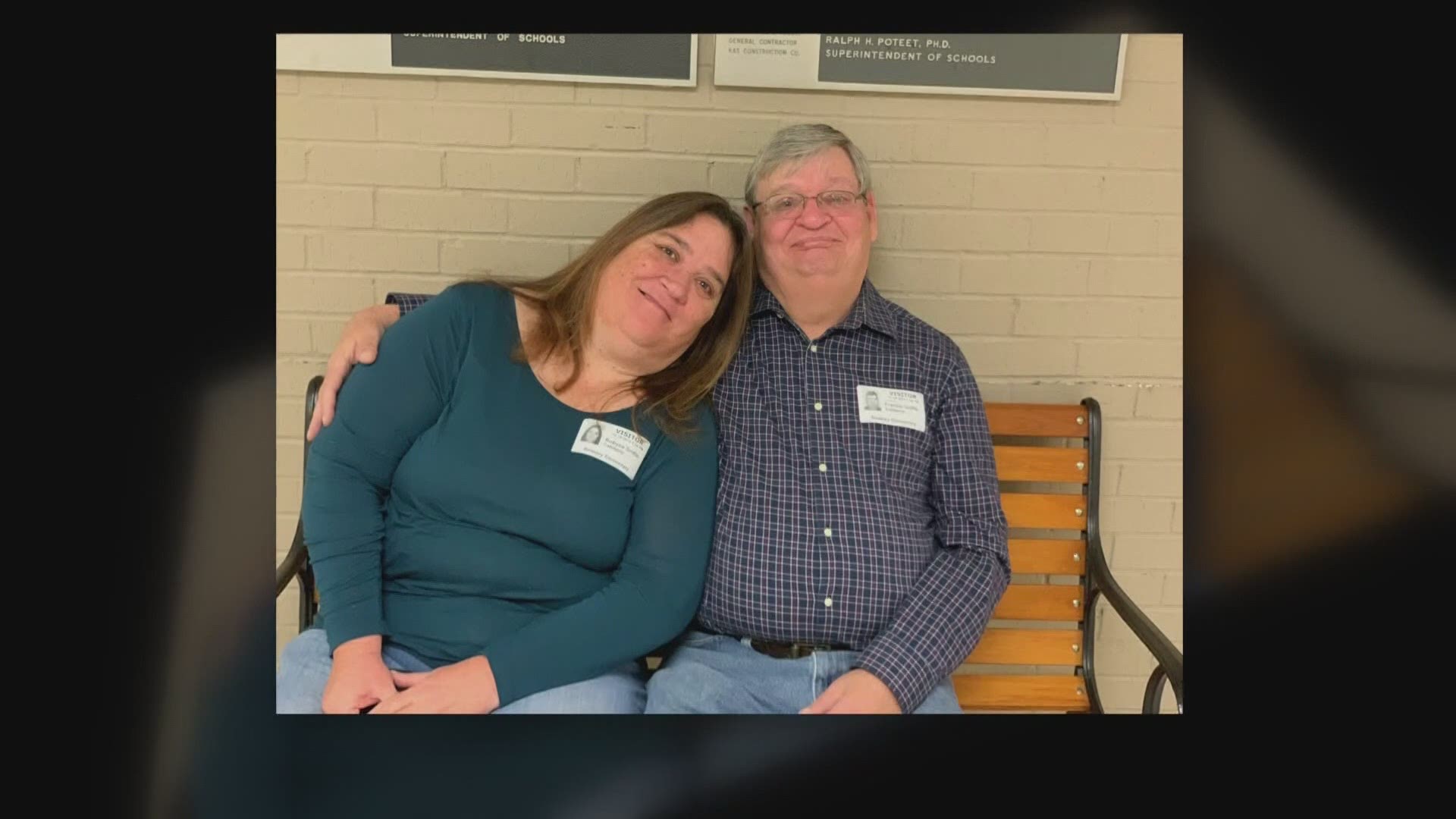MESQUITE, Texas — Mothers have a special place in our hearts.
Chris and Melissa Griffin wholeheartedly stand by that statement when they talk about their mother, Robyne.
"She's the sort of person that would do anything for you," Chris Griffin said. "When she's in the room, you know everything's going to be OK. We've been missing that the past few weeks."
The two siblings are teachers in Mesquite and have tiptoed their way through the COVID-19 pandemic to make sure family members don't get infected.
Teachers, of course, have a higher risk of being exposed to the virus due to their occupation.
However, in early January, Robyne Griffin became a statistic. The 60-year-old was living with her daughter along with her husband when she tested positive for COVID-19.
The couple moved to Texas from New Hampshire when the pandemic began to be closer to family.
Melissa fears she brought the virus home from the classroom.
"Choosing to be a teacher during all of this, we had to financially support our family, and it came with a risk every day," Melissa Griffin said. "Unfortunately, we all got sick."
Robyne tested positive after Melissa did, and so did her husband. Her health took a turn for the worse on Jan. 11, per the Griffin siblings.
Robyne struggled to breathe, and she visited the ER but was sent home.
On Jan. 13, paramedics and an ambulance had to be called, because Robyne was coughing so hard she couldn't breathe.
The beloved wife, mother and grandmother was taken to Baylor Scott & White Medical Center in Sunnyvale, a smaller community hospital.
She's been there ever since.
On Jan. 25, she stopped breathing and had to be resuscitated by doctors. From that point on, Robyne was placed on a ventilator and has barely moved.
Her room, thankfully, is on the first floor of the hospital. The location allows Chris and Melissa, along with family, to visit regularly.
Even during the freak winter storm Texas saw, the siblings were there standing by Robyne's window.
"We feel absolutely helpless," Chris said. "To know for a fact that my mom's in there fighting the fight of her life -- it's tough."
The Griffins are fearing the worst. Their mother has been intubated for over a month, and they are trying anything they can to keep her alive.
"Doctors have told us that she needs a higher level of care," Melissa said.
The siblings fear there's not much more a community hospital can offer her.
"The ventilator she's on right now is maxed out," Chris said. "It's reached its limits of what it can do for her body."
Both have requested a transfer to a larger hospital within the Baylor Scott & White network.
They've even reached out to other Level 1 trauma centers in the area.
What the siblings think may help their mother is an ECMO machine.
ECMO stands for extracorporeal membrane oxygenation. The machine can act as a patient's heart and or lungs, giving their organs time to rest and recuperate. Per Columbia University, more than 60% of severe COVID-19 patients who received ECMO have survived.
The only problem is ECMO machines are expensive and scarce across the nation. Usually, only larger hospitals have them.
It also takes a highly skilled team of operators to use it.
And due to the nature of the pandemic, hospitals have told the Griffins that they're full and can't take any transfers.
"We feel like we're watching our mom suffocate to death because we just can't get her somewhere else," Chris said.
A spokesperson for Baylor Scott & White sent WFAA the following statement regarding Robyne's situation:
"While we are not able to speak about this individual’s case due to privacy laws, our multidisciplinary clinical team works together to assess and evaluate each individual candidate for a transfer."
The Griffins are praying their mother's diagnosis improves.
But they spoke to WFAA to inform other families not to anchor their loved ones at a smaller facility.
There are no guarantees Robyne's health would be better if she were at a larger hospital.
Still, Chris and Melissa can't live with the fact that they could have taken their mother themselves to a bigger hospital where higher levels of treatment are offered.
"They don't have the equipment here. If we had taken her ourselves instead of asking for an ambulance, I promise you she would have had the support she needs," Chris said. "We're praying for a miracle."
The Griffins added, despite their situation, that they are wholeheartedly supportive of how medical teams are handling the pandemic at both smaller and larger hospitals across the state.

